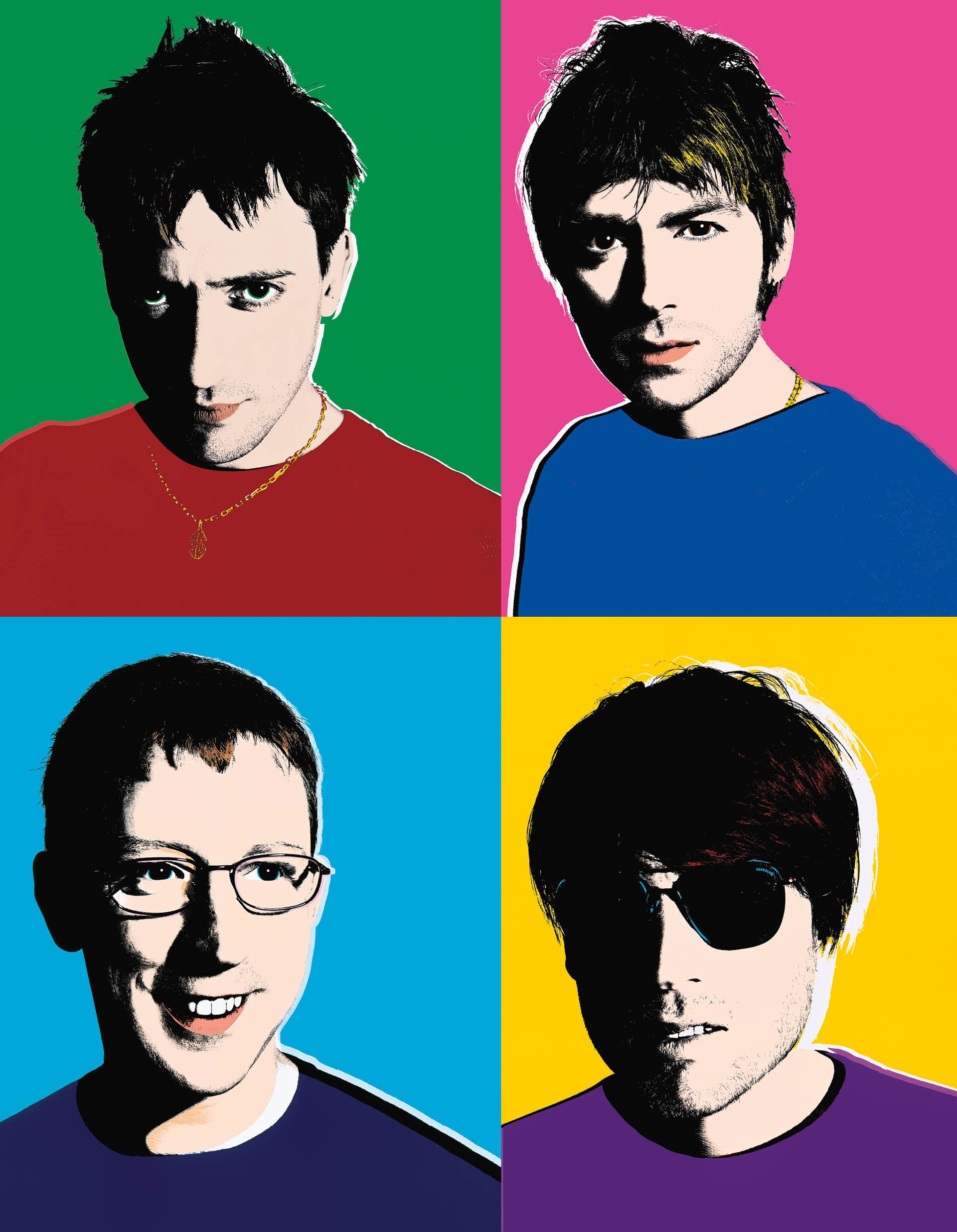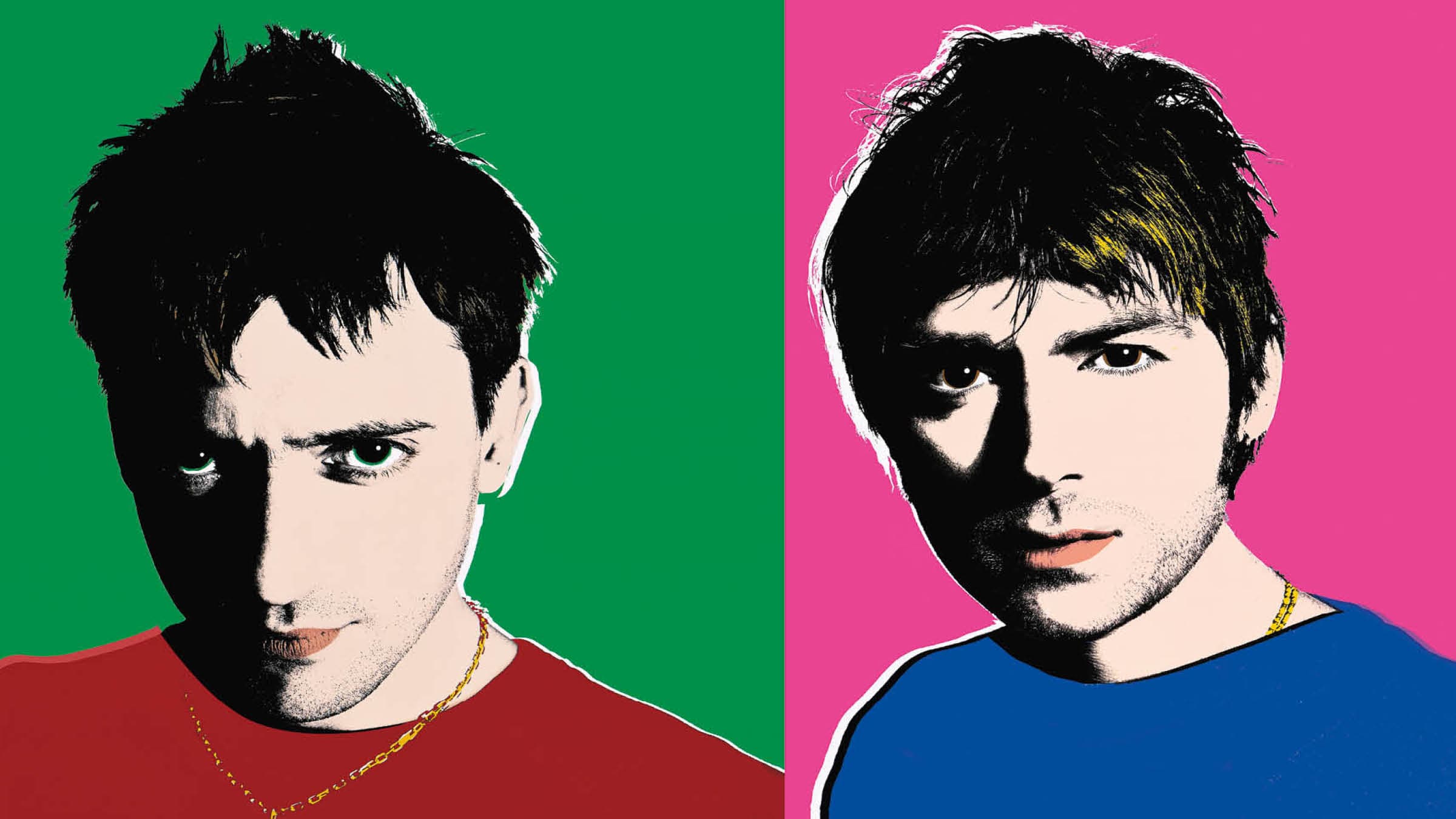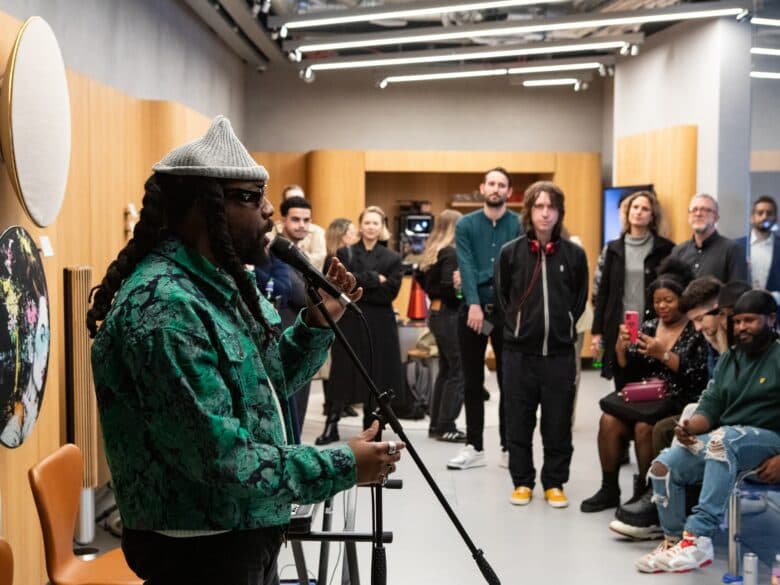More than eight years since Blur’s last album, The Magic Whip, the Britpop band are back in the papers. In 1991, Blur landed on the British music scene with their debut album, Leisure, soon cultivating a north-south rivalry with their Mancunian nemeses Oasis. Then came Blur’s break-up in 2003, and the band members’ careers became defined by solo ventures and sporadic comebacks. Lead singer Damon Albarn casually co-created Gorillaz, one of the biggest alt-everything bands, bassist Alex James bought a very big house in the country and made cheese, and guitarist Graham Coxon and drummer Dave Rowntree released their own solo albums. Just before the release of Blur’s latest album, The Ballad of Darren, HUNGER’s deputy editor, Ry Gavin, sat down with two members of the band to discuss their illustrious careers, going underground for a while and what the changing face of the music industry means for aspiring artists.

Ry Gavin: Before we get into talking about the industry as a whole. We want to ask, why now for the new record?
Graham Coxon: I don’t know. It could be any year. No one was doing much. We had a few spare months. We thought there’s some shows booked in, we’d like to play some new stuff. So we went in with a few demos and recorded an album. It’s weird. It’s like, why? Why anytime? Why bother? There’s things to say. I suppose Blur might get together every now and then to make something because there’s something to say about our environment or ourselves or where we find ourselves in the present. It’s as good a time as any other.
Alex James: Even when we actually split up, it didn’t take us this long to get our shit together. For me it’s always kind of like, why not? The thing about Blur that makes it special is that the four of us spent so many years doing it for hours and hours every day, day in, day out, week in, week out, for 15 years. In December we all went to Damon’s studio for a meeting to see if we fancied it. We went in and we played a few songs. It was like, wow, this is amazing. We put Wembley on sale and it sold out in two minutes flat. The first week of the year we just piled into Damon’s studio and started looking at new stuff and it just happened so quickly and effortlessly. The whole process was joyous.
RG: Damon said that the album is like a mirror to look into or a window to look through. What did you both want to focus on for it?
AJ: I would have been happy just to get back together and play the songs and have thousands of people sing along and that would have been worthwhile. It wasn’t like I was gagging to make another record until we actually started doing it, it became a very enjoyable process. If you can express yourself in some way, it makes you feel slightly less shit about everything. And what I love about what we’ve done is that it’s not trying too hard. I think that’s the great gift of experience – it just gives you the confidence to do less, actually. In many ways it’s a really simple record. It’s really stripped back. There’s not much embellishment or frills on it. It’s just the sound of four guys who have known each other for a very long time letting loose.
GC: I try to guess what Damon’s talking about usually long before he’s written lyrics and play what’s appropriate. For me, it’s sort of a test of my musical cognition really. I’ve had years and years of having to back up whatever I think Damon is trying to say and also stretch myself a little bit and have fun within the chords and the structuring of some songs. I suppose there were things I wanted to approach in a way that I used to in a certain space, since maybe 30 years after Modern Life Is Rubbish and thinking there are some sounds I made years ago that I wanted to revisit a little bit.
RG: How does it feel, after taking a break away from the spotlight, to start doing interviews and press runs again – going from living quite underground to being back in the papers?
GC: I really enjoy it when I feel absolutely certain that the new stuff we’re putting out is really good quality and is saying something different about where we are living now and about us as individuals. To put something out like [the new single] “The Narcissist” and have it received like it was, it’s nice to feel like you’re still relevant and you’re doing some of the biggest shows you’ve ever done in your life. I’m 54, so this feels quite good.
AJ: Yeah, I think music’s a big part of all our lives. We’ve realised that Blur is something that none of us could ever walk away from. I think it’s a terrible shame that most bands end up hating each other. The divorce rate with bands is like 99.9 per cent. All my favourite bands hate each other now. I can’t see Johnny Marr and Morrissey getting back together and [New Order’s] Bernard and Hooky are strained. I think if success is going to come to you in the music industry, it tends to come quite quickly at quite an early age, and that can give you a second act problem. What do you do with the rest of your life? I didn’t choose for Blur to stop being a full-time thing when it did, but I think spiritually it was the best thing that could have happened for all of us. We were young enough at that point to have enough energy to pursue other things and all of us have managed to have a second act. Blur isn’t the thing that defines us exclusively. That’s probably the reason we can come back to it with open hearts and just enjoy it, because we’ve all got other stuff going on.
RG: Speaking generally about the music industry as a whole, how has it changed? Maybe beyond things like TikTok.
GC: There’s no money in the music industry any more. When we started, there were no DAWs [digital audio workstations], we recorded to tape, you had to have a song pretty much structured and finished. You couldn’t just cut a middle eight out and then cut and paste anything. You had to play it all. I think it’s a little too easy to make music now. But I think because it’s so easy to make music now, it’s twice as hard to make good music. And that shows. I think that shows every time I turn on the radio because you can hear the DAW. You can tell that songs are not being written the same as they used to be written.
AJ: When we started in the early Nineties to now, that’s as long in the music industry from the start of the Beatles to the start of Blur. Thirty years. The whole global record industry was really kick-started by the Beatles. George Martin, when he signed them, was running the entire label. But the record industry was literally a cottage industry. Parlophone was just one guy and his secretary, and he signed the bands, he produced the records, he was doing the arrangements, then he was getting the records pressed and doing the promotion plugging. I was a teenager in the Eighties and the stuff you listen to as a teenager – for me that included the Beatles – is the music that cuts the deepest, it never really leaves you. And every night of the week in Bournemouth [where James grew up and started playing in bands], there were bands playing in pubs. You could exist living in a Transit van selling a few hundred copies of your EP and touring in pubs and clubs. You had bands like Half Man Half Biscuit or Gaye Bykers on Acid eking out a perfectly wonderful existence playing nightclubs and selling their EPs. At the other end of the scale you had Michael Jackson and Spandau Ballet and Duran Duran spending a million dollars on a video.
RG: And how does that compare to now?
AJ: What I think is different now is that Adele and Ed Sheeran are bigger than the Beatles and the Rolling Stones and Madonna and Michael Jackson put together. When Adele puts a new record out it’s visible from space. And you can’t go and buy a fucking loaf of bread without hearing what Ed Sheeran thinks. But what’s happened is that there are no more Half Man Half Biscuits or Gaye Bykers on Acid. That just doesn’t work. Particularly for bands, actually. The record companies used to fund everything [the tours, the teams, the equipment] and get the money back from the records, but people aren’t buying records like they used to. So now it tends to be a successful act – a frontperson – with a bunch of backing musicians. And they’ll throw everything at it. A hit song now typically has about 20 writers on it because the record company is only going to invest in something they are absolutely sure is as good as it can be.
RG: Graham, for bands in particular, how does the state of the industry affect their chances of success?
GC: I think it’s the fact that you can’t live cheaply in London, you can’t squat necessarily, you can’t do any of those things. Venues are getting fewer and fewer, I think that has more of an effect. You can’t go on the dole and then make music. You can’t live very cheaply. Maybe it’s just finding somewhere to live. Maybe it’s finding a venue, but there are just other opportunities now. The thing is it’s so thick with people that it’s hard to really see what’s going on. I was lucky enough to make my name, so to speak, in the Nineties, really, and I’ve kept at it no matter what, with ups and downs personally and professionally. So I’m still able to put records out, but anyone can put records out really. The most difficult thing is to make good music.
RG: But it definitely feels like there aren’t the exciting stories happening right now that used to happen back in the day. That feels different, right?
GC: I guess I’d agree with that, but I think we probably felt the same in the Nineties when people from Parlophone would talk about the Seventies or the earlier Eighties. They would talk about the parties that Freddie Mercury was at. There are small pockets of these sorts of experiences between friends and friends in bands that may have happened one year at Glastonbury or something like that. Generally, as an all-the-time, 24-hours-a-day thing, the music industry isn’t really doing that any more. You’d go to EMI conferences once a year and it would be absolutely mad. It would be the day or the weekend where everybody had permission to go crazy, whoever you were. The same people aren’t getting into the music industry. I think now you can study music technology, and business, you can be all clean as a whistle and not really be interested in all of those experiences that we used to have. That might get in the way of the business side of things, but we really never cared about the business side of things. In the Nineties, we still wanted to be like the Who. Nobody wants to be like the Who now. There definitely are bands that are like that now, and worse, but it’s few and far between.
RG: I think most of us have heard a story or two from the infamous EMI conferences… Alex, is there a story in particular that encapsulates Blur’s heyday for you?
AJ: You know, it’s hard to pick a heyday, man. These are the biggest fucking shows we’ve ever done. I suppose the times that you really remember with the most fondness is the first time something happens. Going way back, the first time we really smashed it, I was still at college. I got my French language exam results and I got 2 per cent and it didn’t look like my academic career was progressing very well. I met the guys at King’s Cross and we got in a hire van and drove to Dudley. I didn’t even know where it was. There was a guy who was very pleased to see us and he kept bringing us crates of Newcastle Brown, which we kept drinking. People started arriving and they all seemed happy to see us as well. We went on and it was the first time that we really smashed it. And that man was Darren, who the album’s named after, we met him that night. So it’s the first time you heard your song on the radio when you weren’t expecting it, the first time you saw your picture in the paper, the first time you really smashed it, the first time someone threw their bra at you. What a thing to be able to play music with all guys that I’ve been doing it with since I was fucking 19. But I wouldn’t want to do it all the time [Laughs.]


